Kitchen Equipment
We supply high-quality Kitchen Equipment for Hospitality Clients all around the world.
Request a Quotation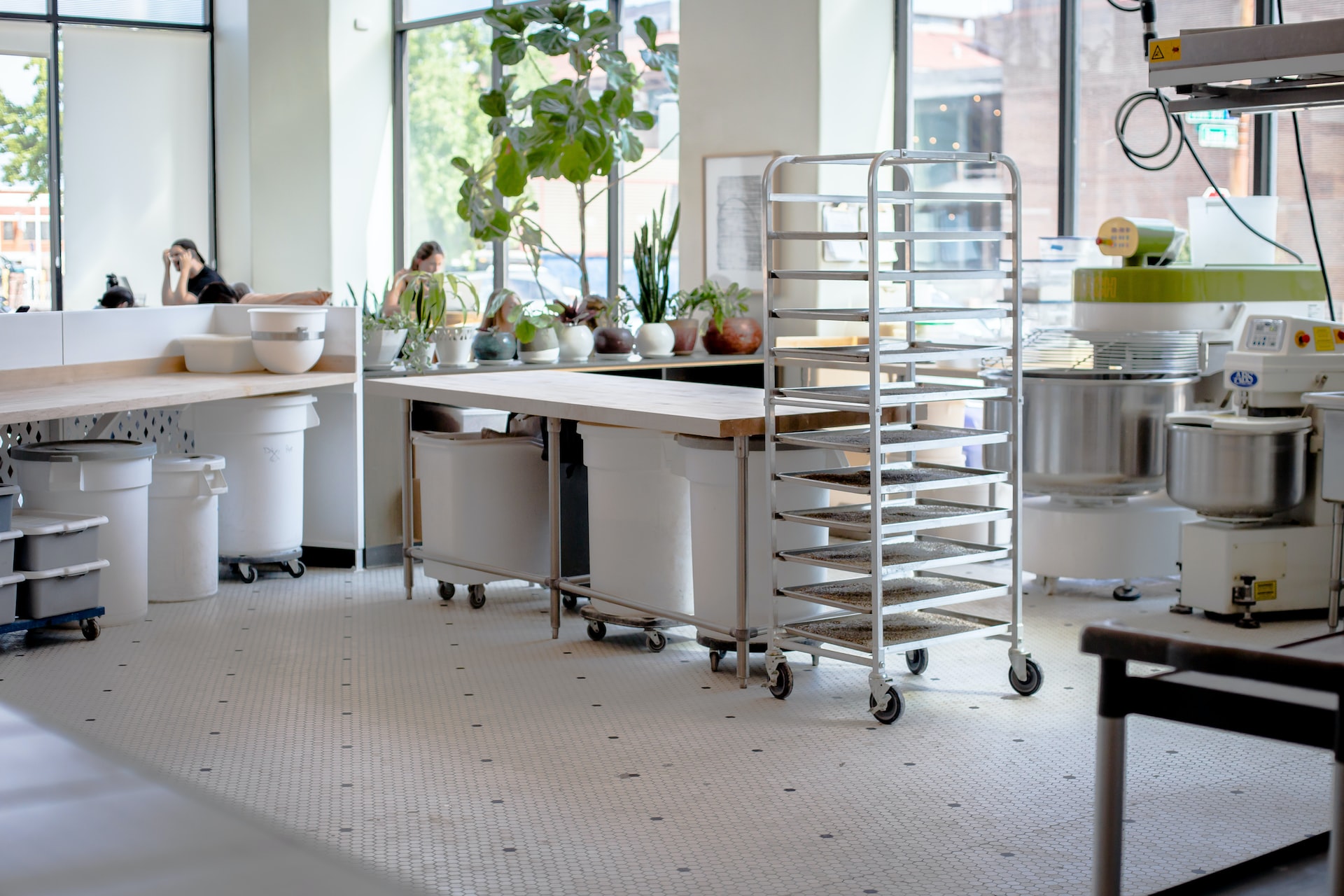
Equipment for Commercial Kitchens
The rhythmic clatter of pans, the sizzle of ingredients, the focused energy of chefs – the commercial kitchen is the vibrant heart of any thriving hospitality establishment. From the intimate charm of a boutique cafe to the bustling efficiency of a high-volume restaurant, the backbone of success lies in a well-equipped and thoughtfully designed culinary workspace. Equipping your kitchen strategically is not merely about acquiring appliances; it's about investing in efficiency, consistency, safety, and ultimately, the satisfaction of your diners.
This comprehensive guide delves deep into the world of commercial kitchen equipment, exploring essential categories, highlighting key considerations for design, and underscoring the critical role of technology in shaping the future of food service. Whether you're a seasoned restaurateur looking to optimize your operations or an aspiring entrepreneur embarking on your first culinary venture, understanding the nuances of commercial kitchen equipment is paramount.
Why Commercial Kitchen Equipment Matters
Commercial kitchens are high-performance environments. Unlike domestic kitchens, they are designed to handle long hours of continuous use, endure high temperatures, and meet fast-paced demands day in and day out. In such intense settings, investing in reliable, high-quality equipment is not just beneficial—it’s essential to ensuring smooth operations and long-term success.
One of the key advantages of commercial kitchen equipment is operational efficiency. Commercial-grade appliances are specifically built to speed up food preparation and service, allowing kitchens to handle high volumes and meet tight schedules without compromising output.
Equally important is consistent quality. Precision and reliability in commercial equipment ensure that every dish meets the same high standards, helping to build a strong brand reputation and deliver a consistent dining experience to customers, no matter how busy the kitchen is.
Compliance and safety are also critical factors. Commercial kitchen equipment is designed to meet stringent food safety and health regulations. With features such as accurate temperature control, easy-to-clean surfaces, and built-in safety mechanisms, these tools help ensure a clean, compliant, and secure environment for both staff and patrons.
In addition, investing in energy-efficient equipment can result in significant cost savings over time. Though the initial cost may be higher, these machines consume less power, leading to reduced utility bills and a more sustainable operation—an increasingly important consideration in today’s environmentally conscious market.
Finally, the right equipment enhances staff productivity and morale. Ergonomic, user-friendly tools make day-to-day tasks easier, safer, and more comfortable for kitchen staff. When employees are supported by efficient, well-designed equipment, they can work more effectively and with greater satisfaction, contributing to a positive and productive kitchen culture.
Essential Categories of Commercial Kitchen Equipment
Cooking Equipment
This is the foundation of any kitchen. The cooking station should be powerful, flexible, and tailored to your menu style.
- Ranges and Ovens: The backbone of any kitchen, ranges and ovens provide versatile cooking options, including gas, electric, and induction ranges, convection ovens, and combination ovens. These appliances enable chefs to prepare a wide variety of dishes efficiently and consistently, from simmering sauces to roasting meats.
- Grills and Griddles: Perfect for high-temperature cooking, grills and griddles are indispensable for searing steaks, grilling vegetables, and preparing breakfast staples like pancakes and eggs. They add unique flavors and textures, especially important for menus emphasizing grilled or charred items.
- Fryers: Deep fryers, available in countertop or floor models, are essential for producing crispy fried foods such as french fries, chicken, and onion rings. Their ability to maintain consistent oil temperatures ensures perfectly fried dishes every time.
- Steamers: Steamers offer a healthy cooking alternative that preserves nutrients and natural flavors. Ideal for vegetables, fish, and dumplings, steamers are increasingly popular in health-conscious kitchens and cuisines focused on freshness.
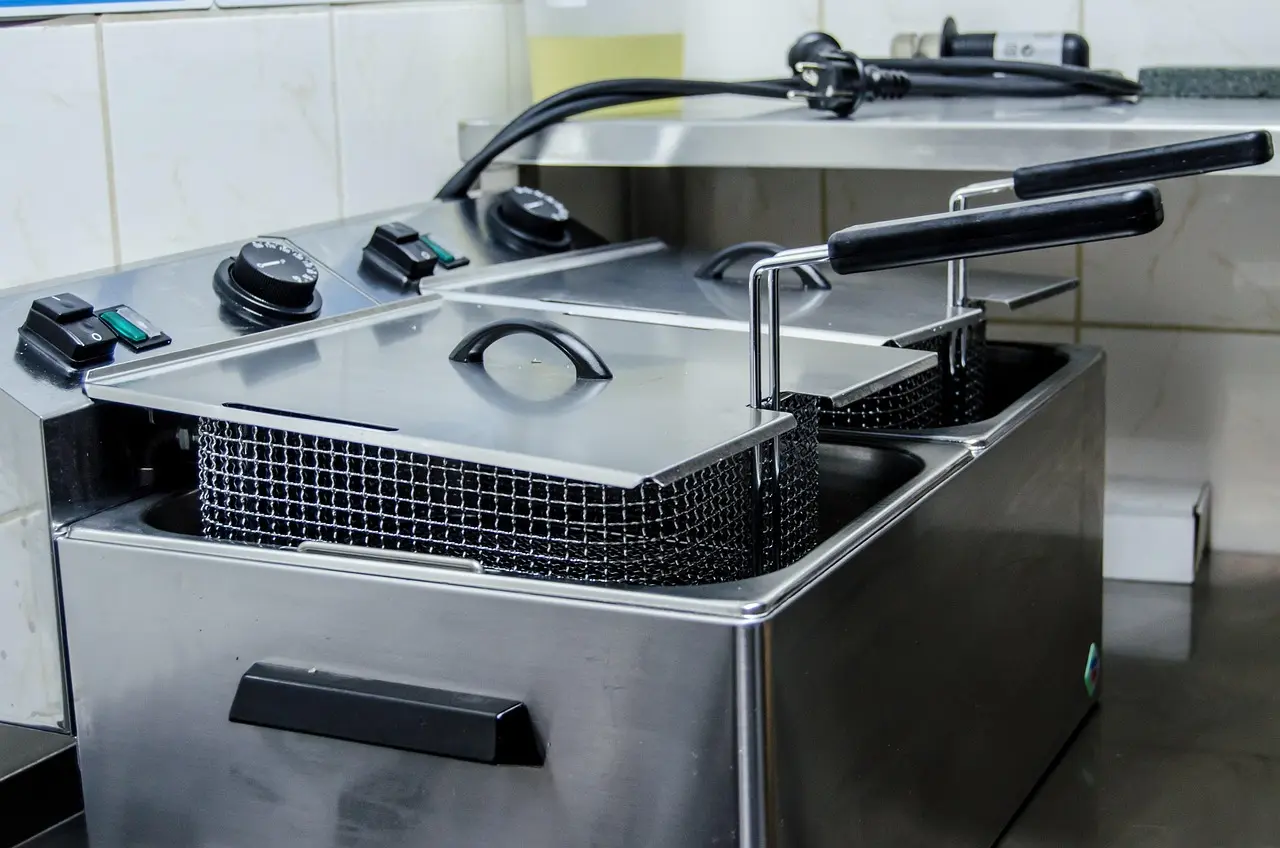
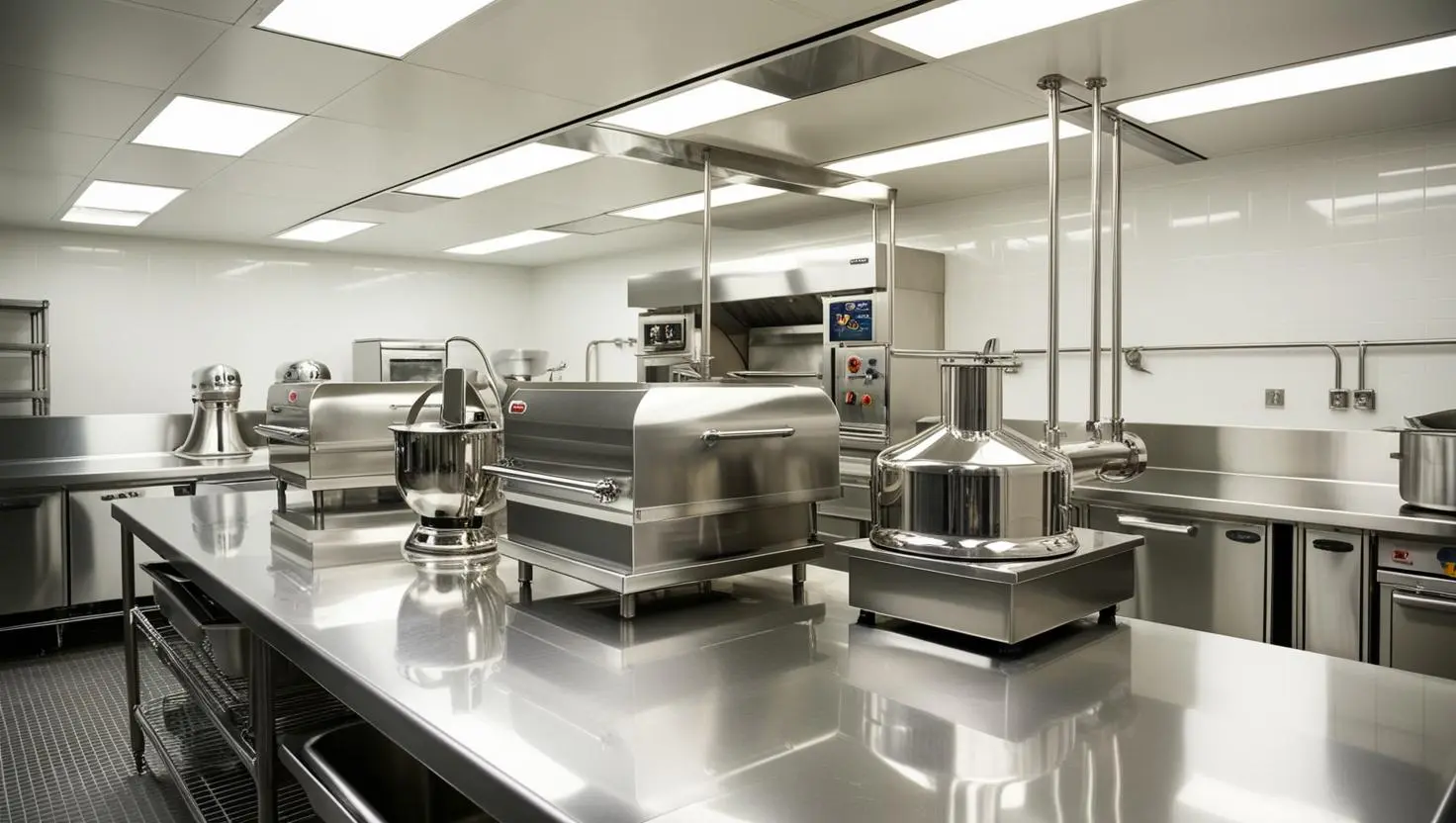
Food Preparation Equipment
Efficient prep work is the secret to smooth kitchen operations. Investing in high-quality prep equipment can save hours of labor.
- Mixers: From mixing dough and batters to whipping cream and sauces, mixers come in various forms including stand mixers, hand mixers, and immersion blenders. Commercial-grade mixers often include attachments that expand their functionality.
- Food Processors: These versatile machines chop, slice, dice, shred, and puree ingredients quickly, saving time and labor in busy kitchens.
- Slicers: Used for slicing meats, cheeses, and vegetables with precision, slicers ensure consistent thickness, perfect for deli sandwiches or gourmet charcuterie.
- Cutters and Choppers: Both manual and electric models help with chopping vegetables or grinding meat, enhancing safety and speed while reducing repetitive strain.
Refrigeration and Storage
Preserving ingredients at safe temperatures is key to food safety and freshness.
- Refrigerators and Freezers: Critical for storing perishable ingredients and prepared foods, options range from reach-in refrigerators to walk-in coolers and freezer chests. Modern units often feature energy-efficient designs that reduce operational costs.
- Ice Machines: Providing a constant supply of ice for beverages and food displays, reliable ice machines are vital for maintaining food safety and customer satisfaction, particularly in bars and beverage-focused venues.
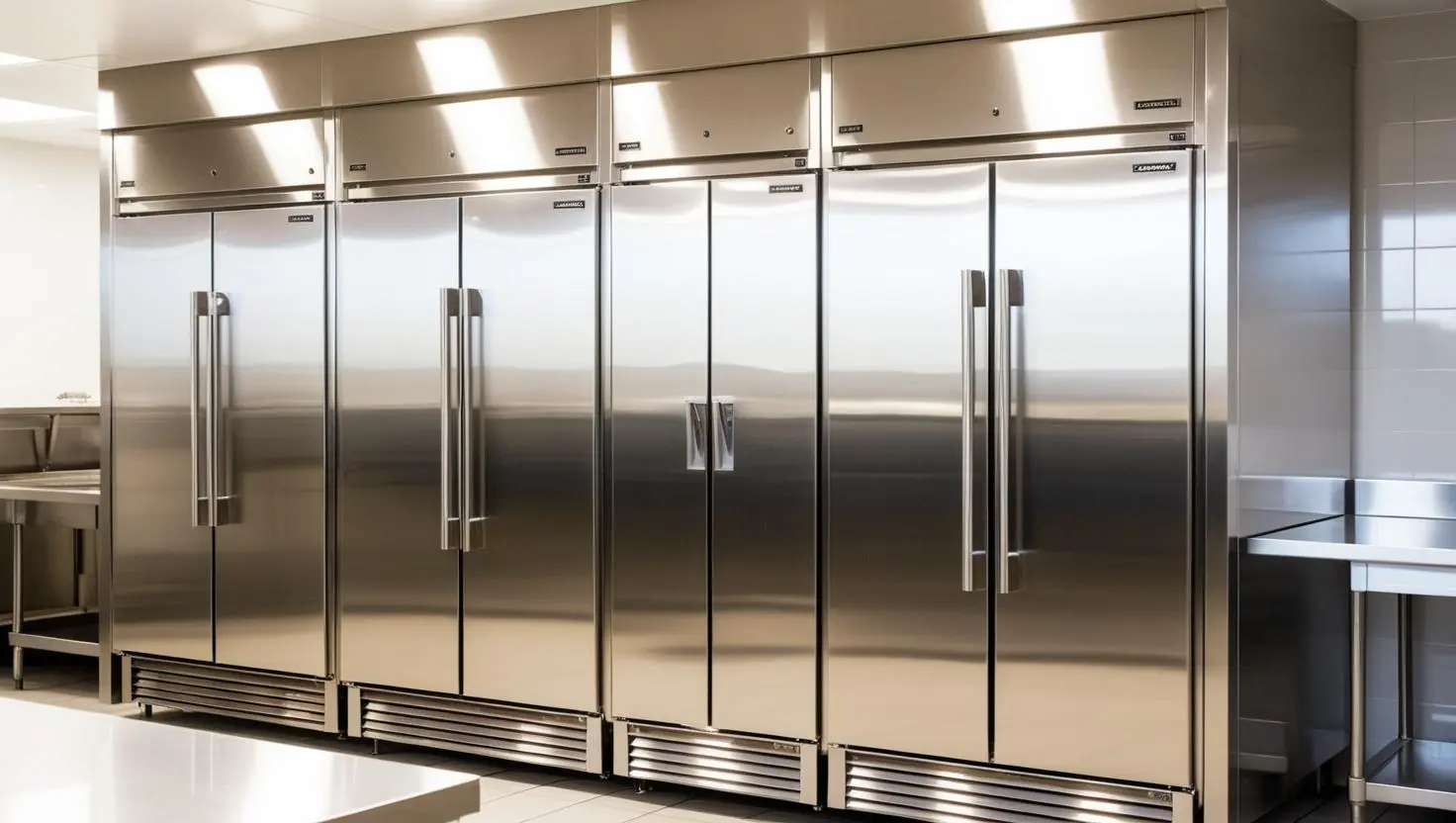
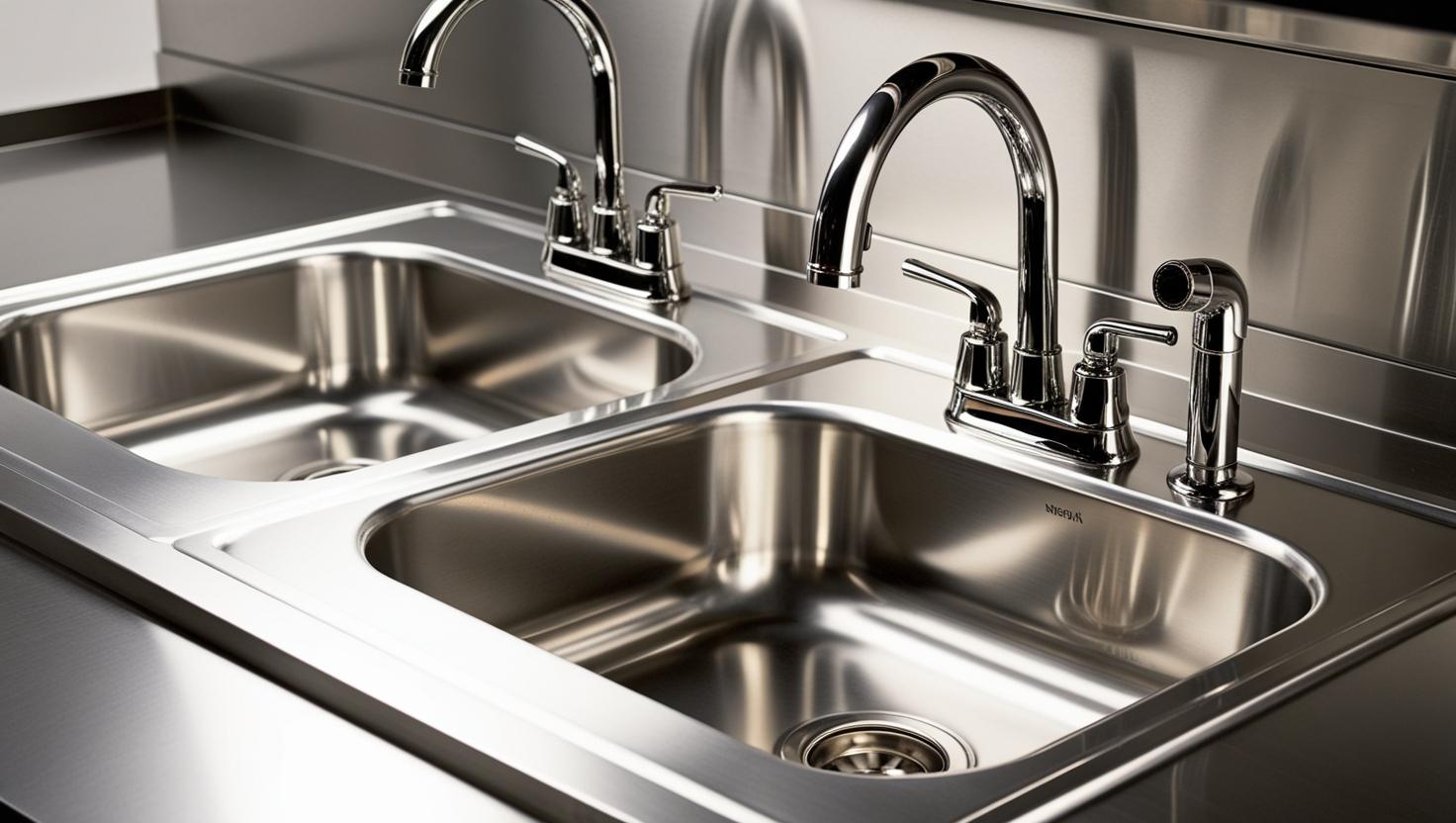
Dishwashing and Cleaning
Cleanliness isn’t just a priority—it’s the law. Investing in the right dishwashing equipment helps maintain hygiene and avoid violations.
- Dishwashers: Commercial dishwashers efficiently clean and sanitize dishes, glassware, and cutlery, ensuring a steady supply of clean wares even during peak service hours.
- Sinks and Faucets: Durable, multi-compartment sinks and faucets are essential for washing produce, cleaning equipment, and maintaining hygiene standards. Proper separation of tasks helps comply with health regulations.
Other Essential Equipment:
- Ventilation Systems: Effective ventilation removes smoke, grease, and odors, improving air quality and maintaining a comfortable environment for kitchen staff.
- Safety Equipment: Fire suppression systems, first aid kits, and protective gear are critical for workplace safety and regulatory compliance.
- Storage Racks and Shelving: Adjustable shelving and mobile racks maximize space, keep kitchens organized, and simplify inventory management.
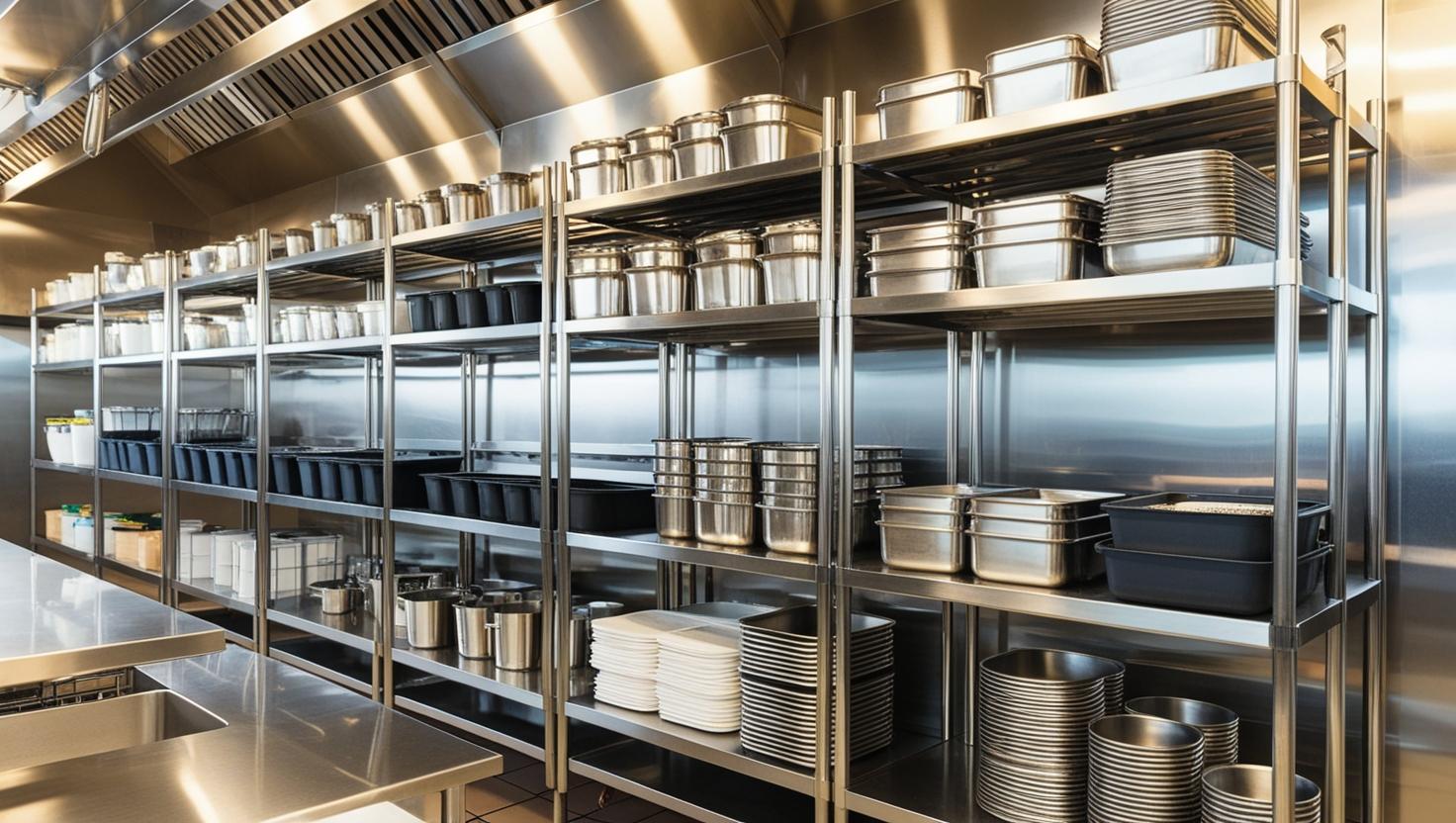
Designing the Heart of Your Hospitality Business: Expert Commercial Kitchen Planning
A successful commercial kitchen is more than just a collection of equipment; it's the heart of your hospitality operation. At Deper Hospitality, we specialize in designing and delivering fully optimized, high-performance kitchens tailored to your unique business goals. Whether you're launching a new restaurant, upgrading a hotel kitchen, or planning a large-scale foodservice facility, our commercial kitchen planning services transform your vision into a fully functional reality.
Our Expertise:
- Needs Analysis: We begin by thoroughly understanding your concept, menu, service style, and operational volume. Deper Hospitality takes a consultative approach to ensure your kitchen layout and equipment selections align with your specific requirements and future growth plans.
- Space Optimization: We maximize your kitchen space with efficient layouts that facilitate smooth workflow and minimize wasted movement. Our designs focus on creating a logical flow, from ingredient storage to final plating, reducing bottlenecks and enhancing productivity.
- Equipment Selection: Our team expertly guides you through the selection of the right equipment for your needs, considering factors like budget, energy efficiency, and ergonomics. We prioritize high-performance, durable equipment that delivers value over the long term.
- Compliance and Safety: We ensure your kitchen design meets all relevant health and safety codes, including proper ventilation, fire suppression systems, and accessibility requirements. Compliance with these standards is vital for avoiding fines and maintaining operational integrity.
- Project Management: We oversee the entire project, from initial planning to final installation, ensuring a seamless and stress-free experience. Our team coordinates with contractors, suppliers, and inspectors to keep the project on schedule and within budget.
Benefits of Our Services:
- Increased Efficiency: A well-planned kitchen optimizes workflow, reduces wasted time, and improves overall productivity. By streamlining processes, staff can focus on delivering exceptional food and service.
- Enhanced Food Quality: Proper equipment and layout contribute to consistent food quality and presentation. A kitchen designed for precision and ease of use empowers chefs to excel.
- Improved Safety: We prioritize safety in our designs, minimizing risks and ensuring a healthy working environment for your staff. From slip-resistant flooring to strategically placed fire extinguishers, every detail is considered.
- Cost Savings: Efficient design and equipment selection can lead to long-term cost savings through reduced energy consumption and improved productivity. Our approach balances upfront investment with ongoing operational benefits.
- Peace of Mind: Our expert team handles every aspect of the planning process, allowing you to focus on other aspects of your business. We provide regular updates and maintain open communication, ensuring transparency and trust.
We cater to a wide range of hospitality establishments:
- Restaurants: From fine dining to fast casual, we design kitchens that meet the unique demands of your menu and service style. Our solutions are tailored to the specific challenges of your culinary vision, ensuring a competitive edge in the market.
- Hotels and Resorts: We create efficient and functional kitchens for hotel restaurants, banquet halls, and catering operations. Our designs accommodate high-volume service while maintaining the flexibility needed for diverse events.
- Cafes and Bakeries: We design spaces optimized for coffee brewing, pastry production, and efficient customer service. By focusing on aesthetics and functionality, we help you create an inviting atmosphere that complements your brand.
- Institutional Kitchens: We plan kitchens for schools, hospitals, and other institutions, prioritizing safety and efficiency. Our solutions address the unique requirements of large-scale food preparation and service, ensuring reliability and compliance.
Additional Considerations for Commercial Kitchen Design
When designing a commercial kitchen, several factors must be considered to ensure that the space is both functional and efficient. Here are some additional considerations:
- Workflow Optimization: The layout should facilitate a smooth workflow, minimizing unnecessary movement and ensuring that staff can work efficiently during peak hours.
- Ergonomics: Equipment should be selected and placed with ergonomics in mind, reducing strain on staff and improving productivity.
- Energy Efficiency: Choosing energy-efficient equipment can lead to significant cost savings over time and reduce the environmental impact of the kitchen.
- Compliance: The kitchen must comply with all relevant health and safety regulations, including proper ventilation and fire suppression systems.
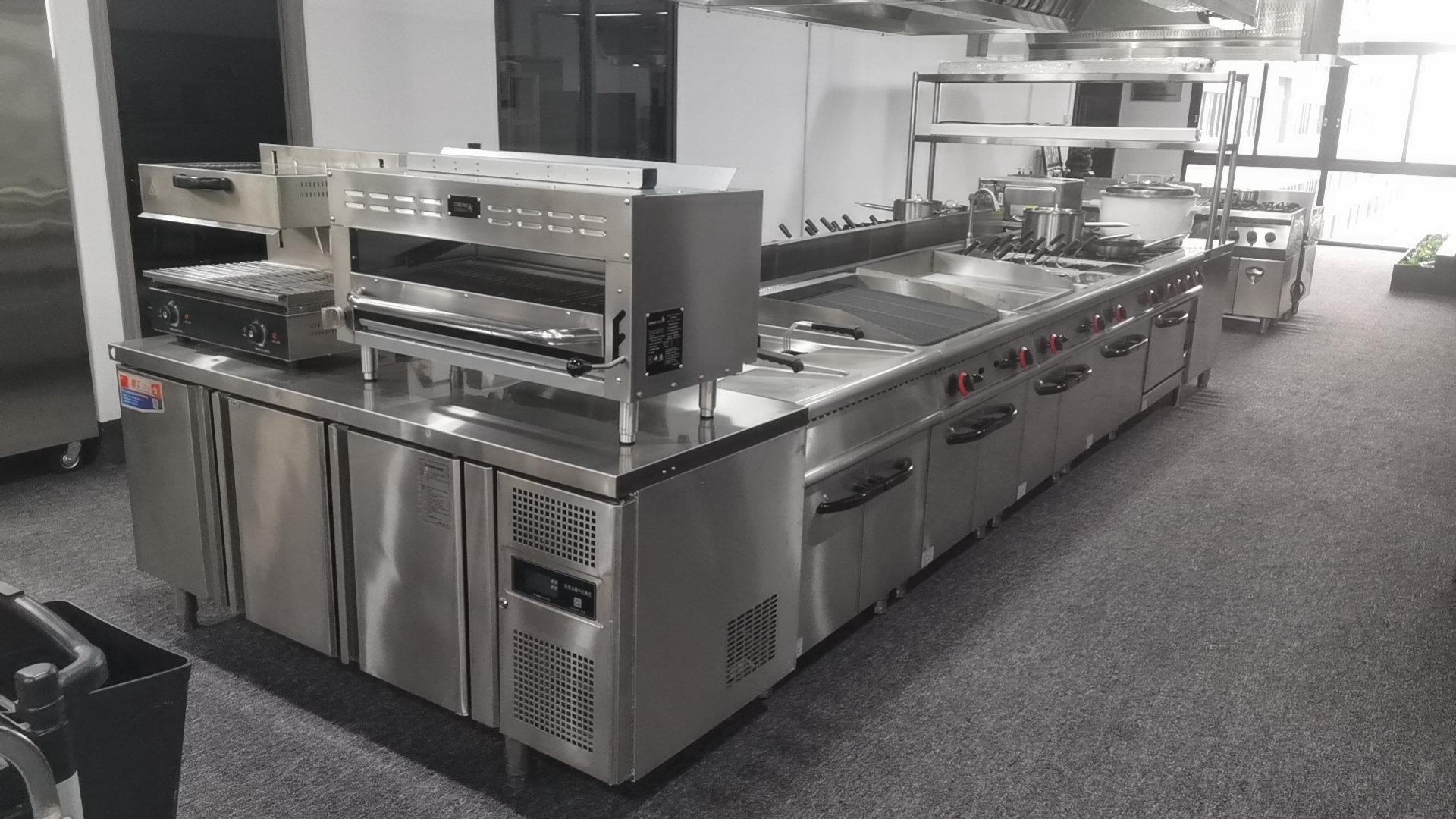
Best Practices for Maintaining Commercial Kitchen Equipment
Maintaining commercial kitchen equipment is crucial for ensuring that it operates efficiently and lasts longer. Proper upkeep not only enhances performance but also helps prevent costly breakdowns and safety hazards.
One of the most important best practices is regular cleaning. Consistently cleaning equipment prevents the buildup of grease, food residue, and other debris that can impair functionality and create unsafe working conditions. Keeping appliances spotless ensures they run smoothly and safely.
Another key practice is scheduled maintenance. Routine inspections and servicing allow potential issues to be identified and addressed early, before they escalate into major problems. This proactive approach helps avoid unexpected downtime and costly repairs.
Staff training also plays a vital role in equipment maintenance. Ensuring that all kitchen staff are properly trained on the correct use and care of each piece of equipment reduces the risk of misuse or accidental damage. Well-informed employees contribute to extending the lifespan of your kitchen tools.
Lastly, effective inventory management is essential. Keeping a well-organized inventory of spare parts and necessary supplies ensures that repairs can be made quickly when needed, minimizing disruption to kitchen operations.
The Role of Technology in Commercial Kitchens
Technology is revolutionizing commercial kitchens, enhancing efficiency, productivity, and sustainability. As the hospitality industry evolves, embracing innovative solutions has become essential for staying competitive and meeting modern operational demands.
Smart appliances are among the most impactful advancements. These devices can be controlled remotely and provide real-time performance feedback, helping to optimize energy usage and reduce waste. Not only do they contribute to environmental sustainability, but they also ensure consistent cooking quality and reduce human error.
Kitchen management software is another critical tool. These systems help manage inventory, track orders, and optimize workflow, which reduces errors and improves overall kitchen efficiency. By automating routine tasks and centralizing information, kitchen staff can focus more on delivering high-quality food and exceptional customer service.
Automated systems, including robotic kitchen assistants, are increasingly being adopted to handle food preparation tasks. These technologies reduce labor costs, increase consistency, and are especially useful during peak hours when manual labor may struggle to keep up with high demand.
By embracing these technologies, commercial kitchens can gain a significant competitive edge. We can assist hospitality businesses in integrating these advanced solutions into their kitchen operations. With the right technology, kitchens become more sustainable, efficient, and productive—ultimately enhancing the dining experience for guests. Whether it's optimizing energy use or automating routine tasks, technology is transforming the heart of hospitality establishments.
Conclusion
A well-equipped commercial kitchen is the backbone of any successful hospitality business, and Deper Hospitality understands this better than anyone. By categorizing kitchen equipment, selecting high-quality appliances, and designing spaces for optimal efficiency and safety, establishments can ensure consistent food quality and smooth operations. Deper Hospitality emphasizes the importance of modern solutions, advocating for the integration of advanced technology, smart systems, and automation to stay competitive in the ever-evolving industry.
Whether you’re launching a new restaurant, upgrading an existing establishment, or optimizing a large-scale operation, expert commercial kitchen planning is vital. Deper Hospitality provides tailored solutions that transform your vision into a thriving culinary space. From needs analysis to 3D modeling and project management, every step is designed to ensure success.
Let Deper Hospitality help bring your culinary dreams to life. Contact us today to schedule a consultation and explore how we can design a kitchen that sets the stage for your success. Together, we’ll build the foundation for an exceptional hospitality experience.
Ready to embark on a journey redefined hospitality products?
Contact us today to learn more about our customization options and to request a quote.